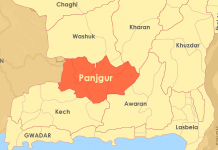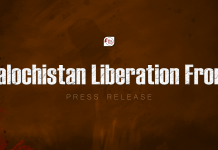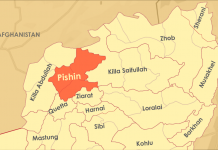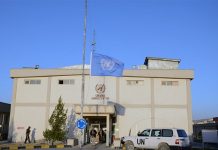Author: Zameen Zaag
Some wounds never heal, some pains never fade, and some figures transcend the limitations of history, living on as eternal symbols of resistance. General Aslam Baloch is one such figure. His name is not merely a part of Balochistan’s history; it symbolises revolution, sacrifice, and an unwavering commitment to the cause of freedom. His journey—from being Aslam to Ustad Aslam Baloch and ultimately General Aslam Baloch—was not one paved with ease or comfort. It was forged through immense hardships, revolutionary decisions, and leadership qualities that would leave an indelible mark on history.
Aslam Baloch’s fight for the independence of Balochistan spanned over two decades. It wasn’t a struggle of mere political rhetoric, but a journey shaped by the fires of war, the devastation of violence, and the unwavering courage to face impossible odds. His life, more than just a chronicle of events, is a testament to the pain and suffering endured by a man who fought not for personal gain but for the freedom of his people. His story is one of relentless perseverance in the face of adversity, and of sacrifices that would break lesser men.
In the labyrinth of his life, one of the most profound sacrifices came in the form of his son, Rehan Aslam Baloch. A father, a revolutionary, and a leader of extraordinary vision, Aslam kissed his son’s forehead—before sending him into the cause of the revolution. The image of a father losing his child to war is one of unimaginable grief, yet Aslam did not falter. His determination to regain the freedom of Balochistan was unshakable, transcending even his personal loss. This was not the only personal sacrifice he made; it was simply the most exemplary action. Aslam Baloch was a man who was constantly torn between his love for his people and the cost of that love.
But it was not just his personal suffering that defined him. His decisions as a leader were monumental, shaping the future of Balochistan’s struggle for independence. His choice to form the national alliance force was not an easy one. It was a decision that required unyielding strength, foresight, and the ability to unite various factions for a common cause—despite their differences. His vision extended far beyond the battlefield, seeing the struggle as part of a global movement for justice and self-determination.
In many ways, General Aslam Baloch’s leadership can be likened to that of some of history’s most influential revolutionaries—Che Guevara, Frantz Fanon, Leon Trotsky, and Bhagat Singh. These men were not defined by their military actions alone but by their commitment to an ideology that sought to uplift the oppressed and fight against tyranny. Aslam Baloch’s name resonates alongside these figures, not because of the battles he fought, but because of the ideals he represented. He became a living embodiment of resistance, not just for Balochistan, but for all oppressed peoples. His enemies feared his resolve, his people saw him as their unwavering protector, and his story continues to inspire those who fight against injustice.
Even six years after his martyrdom, the legacy of Aslam Baloch lives on in the hearts and minds of his people. The mountains of Bolan, standing as silent witnesses to his struggles, seem to bow their heads in reverence to him. In towns like Kahan, Kohlu, Shor-Parood, and Naghao, his name is sung in songs of glory and remembered in the daily prayers of those who once followed him. The sorrow in the air is palpable in these regions, as they mourn the loss of a man who was not just a leader, but a guardian of their dreams and hopes. Dasht and Mastung, regions he once traversed with great determination, still feel his presence in the whispers of the wind. His footsteps left traces in every corner of Balochistan, and to this day, those traces continue to guide the paths of the Baloch people.
As we reflect on the life of General Aslam Baloch, we are reminded of the immutable laws of nature—the sun will rise tomorrow, the night will fall again, and life will continue, inevitably. Similarly, no matter how much time passes, no matter how many generations come and go, we cannot erase the legacy of Aslam Baloch. Just as we cannot challenge the rise of the sun or the passing of the seasons, we cannot ignore the enduring power of his leadership. His name is not bound by time or circumstance—it is etched in the very fabric of history.
Aslam Baloch was more than just a man. He was a symbol of defiance against oppression, a revolutionary whose ideas transcend borders and speak to the heart of all who yearn for freedom. His life was a book, each chapter written with struggles and triumphs, each page filled with the ink of his unwavering commitment to his people. In reading his story, we are reminded that his struggle was not simply for the freedom of Balochistan—it was a universal struggle for justice, for the rights of the oppressed, for the dignity of the downtrodden.
In the end, Aslam Baloch is not just remembered as a leader, but as a reflection of each of us. His life’s work is not confined to a single nation or a particular people; it is a story that belongs to every person who has ever fought for what is right, for what is just, for what is free. Each one of us can find a part of Aslam within ourselves because his struggle was not his alone—it was a struggle for the world. His legacy continues to live on, and it is a call to action for all who believe in the power of revolution, sacrifice, and the indomitable human spirit.
Disclaimer: The views and opinions expressed in this article are those of the author and do not necessarily reflect the official policy or position of The Balochistan Post or any of its editors.






























